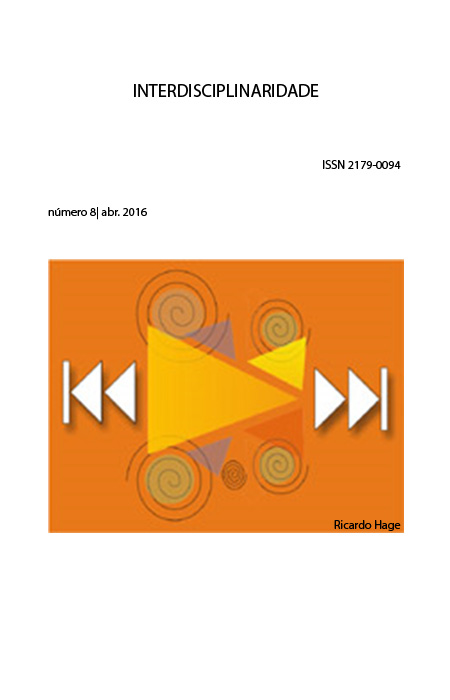Teaching improvement program (TIP) for graduate students in engineering at the USP (São Paulo University) in Lorena.
Keywords:
active learning methodologies, teaching in engineering, multi and interdisciplinary formation.Abstract
This work reports the importance of the Teaching Improvement Program - TIP (Programa de Aperfeiçoamento de Ensino – PAE in Portuguese) at the Escola de Engenharia de Lorena - Universidade de São Paulo (EEL-USP) for training future teachers in Engineering and related courses. Regulated by the USP in 2005, TIP intends to give a teacher’s education course to graduate students (master and doctorate) to guide them to teach adequately in the Engineering graduation course. The course is based upon two steps: pedagogic preparation and supervised teaching traineeship. At the EEL, the pedagogic preparation is based upon students attending Didactics and Practice in Engineering Teaching which has the objective to allow graduate students to start some contact with the use of active learning methodologies and, at the same time, get some knowledge on didactical and pedagogical concepts. To conduct the subject, it was necessary to provide a multi and interdisciplinary team in several fields of knowledge in order to offer a more systemic view of the processes involving the teaching of engineering. Engineers, physicists, chemists, mathematicians, educators and psychologists lead discussions based on the subject, prioritizing contents such as the use of active learning methodologies, Project Based Learning; Peer Instruction; experimental classes with remote projects, the categories of Interdisciplinarity and educational psychology. After discussing the issues, the students begin the preparation of a project that is to be done in the classroom 6 months later under the supervision of a teacher of a graduate subject who will be part of the Supervised Internship in Teaching, the second stage of PAE. The whole project takes into consideration the taught subject, the schedule of activities and descriptions of the classes that will be taught by the graduate student. In this sense, it highlights the importance of PAE's experience in EEL-USP for the teaching of engineering, mainly providing a multi and interdisciplinary training for future teachers, while preparing them for the use of active methodologies in their practice.
Metrics
References
DOS SANTOS et al. 2013. Sócio-Construtivismo e o uso de Metodologias Ativas de Aprendizagem no Ensino de Engenharia. Abenge. Porto Alegre/RS. 79-139.
FAZENDA, I.C.A. O que é interdisciplinaridade? SÃO PAULO: CORTEZ, 2008.
MARCELO. C. 2009. A identidade docente: constantes e desafios. Revista Brasileira de Pesquisa sobre Formação Docente. Belo Horizonte. V. 01, n. 01, p. 109-131, ago/dez, 2009. Disponível em: http://formacaodocente.autenticaeditora.com.br
NÓVOA. A. 2009. Professores: imagens do futuro presente. Lisboa/Portugal: Educa.
TARDIF. M. 2013. A profissionalização do ensino passados trinta anos: dois passos para a frente, três para trás. Educ. Soc. Campinas, v. 34, n. 123, p. 551-571, abr-jun, 2013. Disponível em: <http://www.cedes.unicamp.br>
Downloads
Published
How to Cite
Issue
Section
License
Os autores concedem à revista todos os direitos autorais referentes aos trabalhos publicados. Os conceitos emitidos em artigos assinados são de absoluta e exclusiva responsabilidade de seus autores. A Revista Interdisciplinaridade e os textos aqui publicados estão licenciados com uma Licença Creative Commons Attribution-NoDerivatives 4.0 International. Baseado no trabalho disponível em http://revistas.pucsp.br/interdisciplinaridade. Podem estar disponíveis autorizações adicionais às concedidas no âmbito desta licença em http://revistas.pucsp.br/interdisciplinaridade.
A Revista Interdisciplinaridade e os textos aqui publicados estão licenciados com uma Licença Creative Commons Attribution-NoDerivatives 4.0 International. Baseado no trabalho disponível em http://revistas.pucsp.br/interdisciplinaridade. Podem estar disponíveis autorizações adicionais às concedidas no âmbito desta licença em http://revistas.pucsp.br/interdisciplinaridade.


